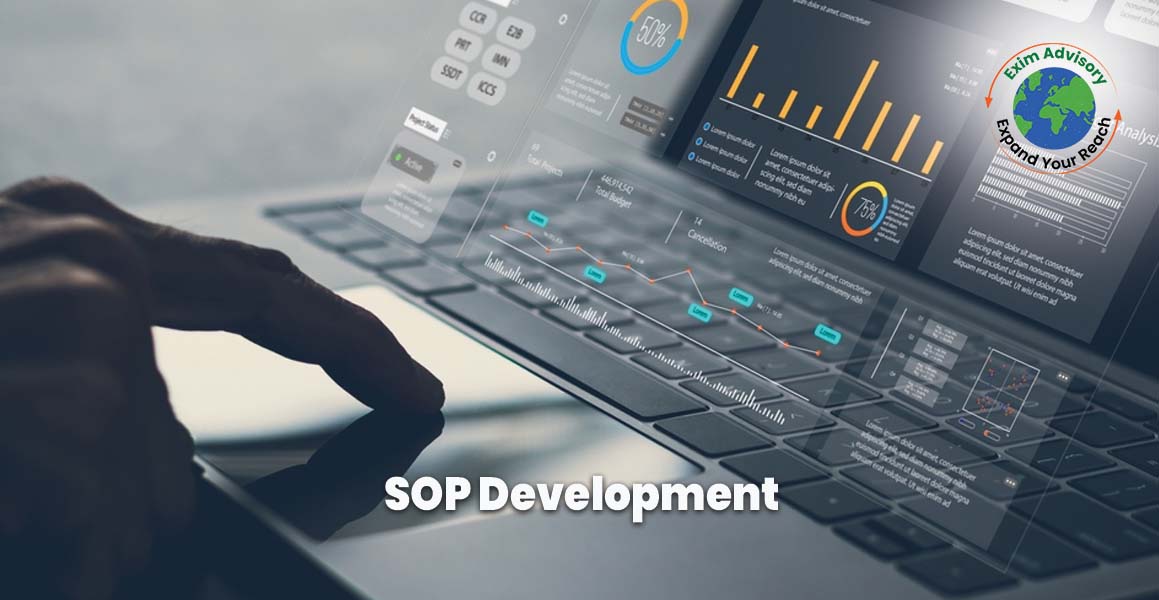
SOP Development is a critical process that involves creating, documenting, and implementing Standard Operating Procedures (SOPs) to ensure consistent and efficient execution of business processes. By formalizing the steps required for daily operations, SOPs help organizations maintain quality, adhere to regulatory requirements, and minimize errors. A robust SOP framework not only streamlines internal workflows but also serves as an essential tool for training employees and driving continuous improvement.
What Is SOP Development?
SOP Development is the systematic approach to drafting, reviewing, and updating documented procedures that outline the methods and processes necessary to perform specific tasks. This process involves:
- Analyzing existing workflows to identify best practices.
- Documenting detailed, step-by-step procedures in clear and concise language.
- Collaborating with subject matter experts and stakeholders.
- Ensuring the procedures comply with industry standards and regulatory requirements.
- Regularly reviewing and revising the SOPs to reflect process improvements and changes in regulations.
Key Characteristics
- Clarity and Precision: SOPs are written in straightforward language to ensure that every step is easily understood by all employees.
- Consistency: They standardize operations, ensuring that tasks are performed uniformly across the organization.
- Regulatory Compliance: SOPs are designed to meet industry regulations and quality standards.
- Training and Onboarding: They serve as essential tools for training new staff and maintaining high standards of performance.
- Continuous Improvement: Regular updates to SOPs facilitate process optimization and operational efficiency.
- Stakeholder Involvement: Development involves input from various departments to ensure comprehensive coverage of all operational aspects.
Why Is SOP Development Important?
SOP Development is essential because it:
- Enhances Quality and Consistency: Ensures that operations are executed uniformly, reducing variability and errors.
- Ensures Compliance: Meets statutory and regulatory requirements, reducing the risk of non-compliance penalties.
- Facilitates Efficient Training: Provides a reliable resource for training new employees, thereby shortening the learning curve.
- Improves Operational Efficiency: Streamlines processes, leading to time savings and cost reduction.
- Supports Risk Management: Clearly defined procedures help mitigate risks by ensuring that tasks are performed correctly and safely.
- Boosts Accountability: Establishes clear roles and responsibilities, enhancing overall organizational transparency and control.
Industries Covered Under SOP Development
SOP Development is applicable across various industries, including:
- Manufacturing: Streamlines production processes and ensures consistent quality control.
- Information Technology: Standardizes processes for software development, IT support, and cybersecurity protocols.
- Healthcare: Ensures compliance with regulatory standards in clinical procedures and patient care.
- Finance and Banking: Establishes guidelines for financial operations, risk management, and compliance procedures.
- Retail and E-Commerce: Standardizes customer service, inventory management, and operational workflows.
- Hospitality: Guides service delivery, operational procedures, and quality assurance in hotels and restaurants.
- Logistics and Supply Chain: Enhances efficiency in warehousing, transportation, and order fulfillment operations.
How to Achieve SOP Development
Achieving effective SOP Development involves several key steps:
- Initial Consultation: Engage with subject matter experts and departmental heads to assess current workflows and identify areas for standardization.
- Process Mapping and Analysis: Document existing processes and identify best practices using flowcharts and process maps to highlight areas of improvement.
- Drafting the SOPs: Develop draft SOPs that detail step-by-step procedures, roles, responsibilities, and necessary resources.
- Stakeholder Review and Feedback: Circulate the draft SOPs among relevant stakeholders for feedback to ensure accuracy, clarity, and completeness.
- Finalization and Approval: Revise the drafts based on feedback, obtain formal approvals from management, and distribute the final SOPs to all employees.
- Training and Implementation: Conduct training sessions to familiarize staff with the new procedures, ensuring smooth implementation across the organization.
- Periodic Review and Update: Regularly review the SOPs to incorporate process improvements, regulatory changes, and feedback from operational experience.
What Documents Are Required for SOP Development?
To support the development and implementation of SOPs, organizations should compile the following documents:
- Existing process documentation and workflow diagrams.
- Detailed role descriptions and job responsibilities.
- Quality control and compliance guidelines.
- Records of internal audits and previous performance reports.
- Feedback and review forms from stakeholder consultations.
- Training manuals and records of staff training sessions.
- Any industry-specific standards and regulatory documentation relevant to the processes.
Fee Structure
The fee structure for SOP Development services typically includes:
- Consultation Fees: Charges for the initial assessment and process analysis.
- Drafting and Development Fees: Costs associated with creating and refining the SOP documents.
- Review and Revision Fees: Expenses for stakeholder meetings, feedback sessions, and finalizing the SOPs.
- Training and Implementation Fees: Charges for conducting training sessions and supporting the rollout of the SOPs.
- Ongoing Maintenance Fees: Periodic fees for reviewing and updating the SOPs to keep them current with operational and regulatory changes.
- Professional Fees: Optional fees if external consultants or industry experts are engaged to assist with the development process.
Fees vary based on the complexity of the processes, the size of the organization, and the level of detail required.
Challenges and Solutions for Best Compliance Practices
Common challenges in SOP Development include:
- Incomplete Process Documentation: Difficulty in capturing all relevant steps and procedures accurately.
- Stakeholder Resistance: Resistance to change from employees accustomed to existing practices.
- Maintaining Relevance: Keeping the SOPs updated in the face of rapid technological and regulatory changes.
- Coordination Challenges: Ensuring consistent collaboration among different departments to produce comprehensive SOPs.
- Quality Control: Balancing thoroughness with simplicity to avoid overly complex procedures.
Effective solutions to these challenges include:
- Conducting detailed process audits to capture all operational steps.
- Engaging all levels of staff in the development process to build ownership and reduce resistance.
- Scheduling regular reviews and updates to the SOPs in line with regulatory and technological changes.
- Establishing a cross-functional team to ensure diverse input and holistic process documentation.
- Leveraging digital tools and process mapping software to streamline documentation and revisions.